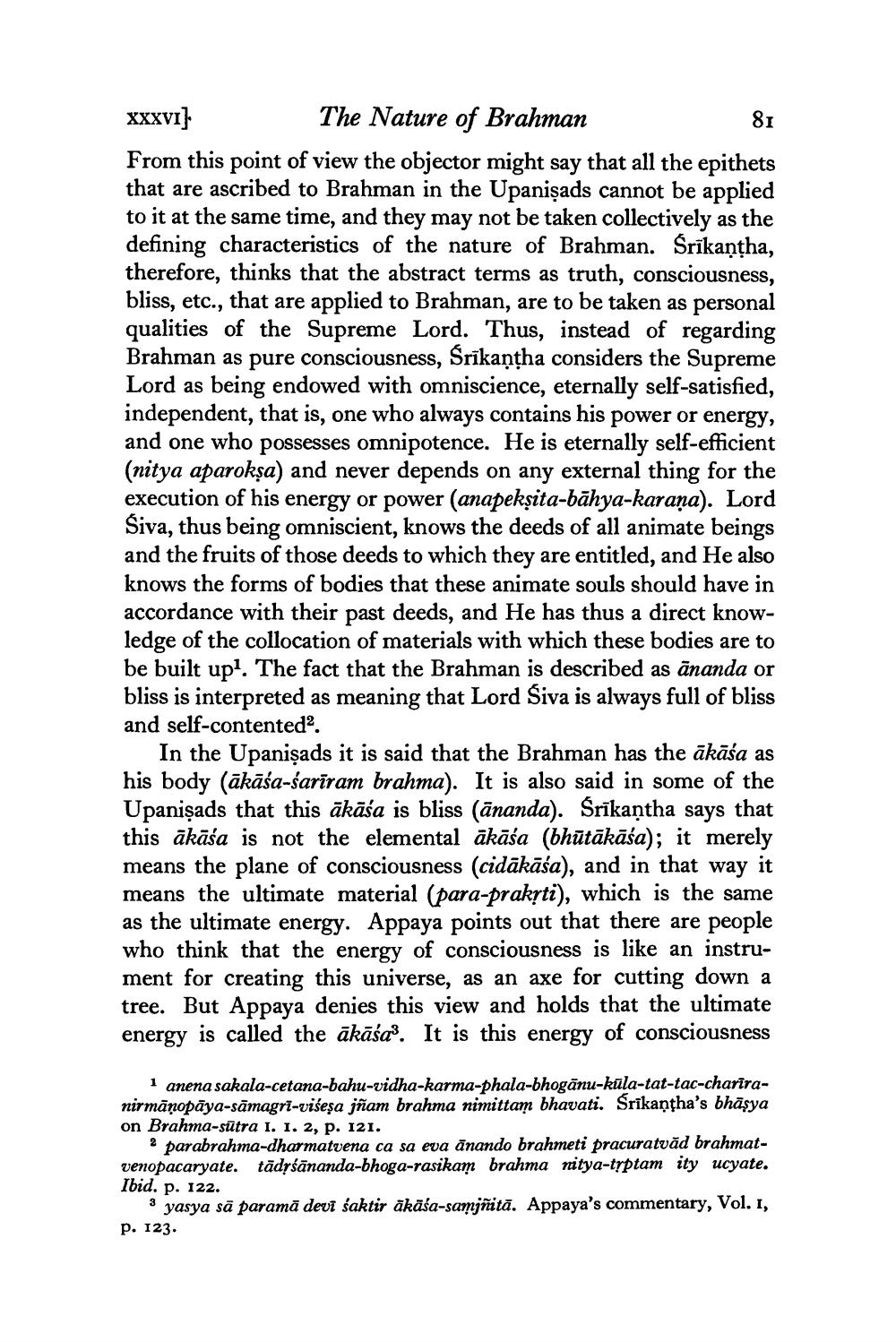________________
81
XXXVI}
The Nature of Brahman From this point of view the objector might say that all the epithets that are ascribed to Brahman in the Upanişads cannot be applied to it at the same time, and they may not be taken collectively as the defining characteristics of the nature of Brahman. Srikantha, therefore, thinks that the abstract terms as truth, consciousness, bliss, etc., that are applied to Brahman, are to be taken as personal qualities of the Supreme Lord. Thus, instead of regarding Brahman as pure consciousness, Śrīkantha considers the Supreme Lord as being endowed with omniscience, eternally self-satisfied, independent, that is, one who always contains his power or energy, and one who possesses omnipotence. He is eternally self-efficient (nitya aparokșa) and never depends on any external thing for the execution of his energy or power (anapekṣita-bāhya-karaña). Lord Siva, thus being omniscient, knows the deeds of all animate beings and the fruits of those deeds to which they are entitled, and He also knows the forms of bodies that these animate souls should have in accordance with their past deeds, and He has thus a direct knowledge of the collocation of materials with which these bodies are to be built up. The fact that the Brahman is described as ānanda or bliss is interpreted as meaning that Lord Siva is always full of bliss and self-contented.
In the Upanişads it is said that the Brahman has the ākāśa as his body (ākāśa-śarīram brahma). It is also said in some of the Upanisads that this ākāśa is bliss (ānanda). Srīkantha says that this ākāśa is not the elemental ākāśa (bhūtākāśa); it merely means the plane of consciousness (cidākāśa), and in that way it means the ultimate material (para-prakrti), which is the same as the ultimate energy. Appaya points out that there are people who think that the energy of consciousness is like an instrument for creating this universe, as an axe for cutting down a tree. But Appaya denies this view and holds that the ultimate energy is called the ākāśa'. It is this energy of consciousness
1 anena sakala-cetana-bahu-vidha-karma-phala-bhogānu-kula-tat-tac-chariranirmānopāya-sāmagri-vibesa jñam brahma nimittam bhavati. Srikantha's bhāsya on Brahma-sūtra 1. I. 2, p. 121.
2 parabrahma-dharmatvena ca sa eva ānando brahmeti pracuratvăd brahmatvenopacaryate. tadyśānanda-bhoga-rasikam brahma nitya-trptam ity ucyate. Ibid. p. 122.
3 yasya sā paramā devī saktir ākāśa-samjñitā. Appaya's commentary, Vol. I, p. 123.




